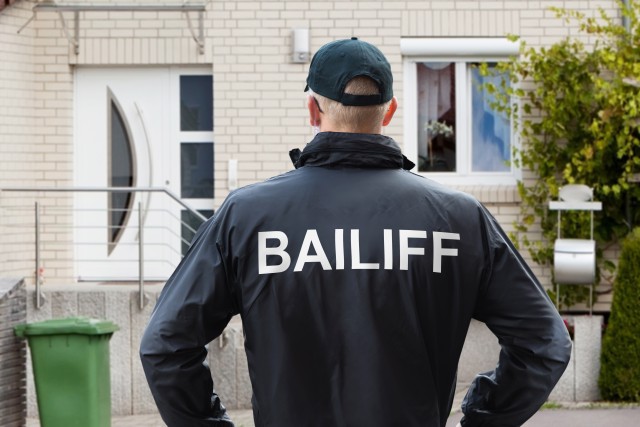If you're dealing with debt, the thought of bailiffs or debt collectors showing up at your doorstep can be overwhelming. While many people use these terms interchangeably, it's important to understand that there are significant differences between the two. Knowing these differences and your rights can help you respond appropriately in these situations. Here are three key distinctions between bailiffs and debt collectors:
1. ID is the Key
When someone arrives at your door claiming to be a bailiff or a debt collector, it's essential to ask for their formal identification. This will help you verify their legitimacy and determine whether they are a debt collector or a bailiff. Legitimate bailiffs should carry identification issued by the court or enforcement agency, including a photograph and details about the court or agency they represent. Debt collectors, on the other hand, will have ID issued by their agency or company. It's crucial to verify their credentials before engaging with them.
2. Entering Your Property
Bailiffs and debt collectors have different legal powers when it comes to entering your property. Bailiffs may have the right to enter a home, but they cannot force entry during their first visit. They typically send a "notice of enforcement" letter at least seven days before they can turn up at your property. If you've received this notice and the court has given permission, bailiffs can force their way in. However, they are only allowed to enter between 6am and 9pm, and they must not enter premises if only vulnerable individuals or those under 16 are present. Debt collectors, on the other hand, generally do not have the right to enter a home without permission unless they have obtained a court order.
3. Seizing Possessions
When bailiffs visit your home, they are looking to seize possessions to cover the cost of your debt. They will typically target your most valuable belongings, such as your car. However, there are certain goods that bailiffs cannot take if they are essential for your needs, including clothing, bedding, essential furniture, and household appliances. Debt collectors, on the other hand, do not have the power to seize your possessions.
Remember, it's crucial to address your debts with both bailiffs and debt collectors and not ignore them. Seeking help to manage and clear your debt is always a good idea. Organizations like Citizens Advice, StepChange, and National Debtline can provide assistance in negotiating with creditors and managing your debt. Additionally, there are free government schemes and resources available, such as the Breathing Space program, which offers legal protection from creditors for up to 60 days. By understanding your rights and seeking support, you can navigate the challenges of debt more effectively.
Always prioritize paying essential bills like rent, mortgage, council tax, and energy bills, as the consequences of not paying these can be more serious. Working out a budget and paying more than the minimum on credit cards each month can also help you manage your debt more effectively. Remember, there are resources available to help you, so don't hesitate to reach out.
Did you miss our previous article…
https://hellofaread.com/money/thousands-of-households-could-miss-out-on-free-cash-grants-if-they-dont-act-fast/








